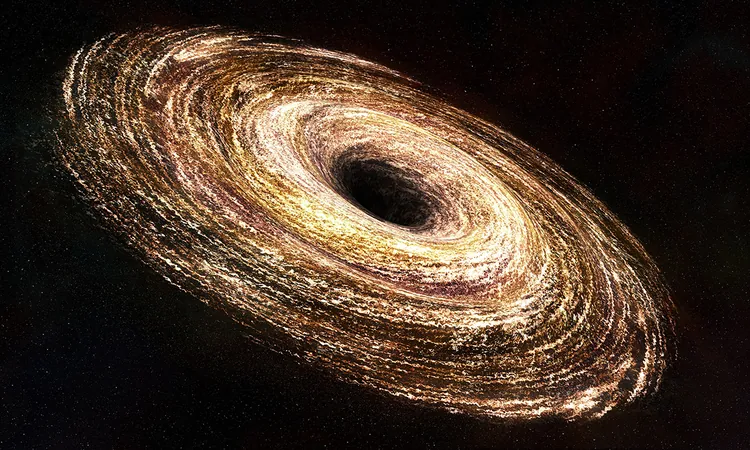
The Universe Might Meet Its Fate Sooner Than Expected!
2025-05-21
Author: Mei
A Shocking Revelation About the Universe's Lifespan
Hold onto your seats, universe enthusiasts! New research has revealed that the universe might not last as long as we once thought. In fact, leading theorists from Radboud University in the Netherlands have calculated that the universe’s most enduring stars, white dwarfs, could vanish into nothingness in a mere 10^78 years. That may sound like an eternity, but it’s light years away from the previously estimated 10^1100 years!
Heino Falcke, a black hole expert, emphasizes that while this timeline seems incredibly long, it’s still a drastically shorter lifespan than we anticipated. "The ultimate end of the universe comes much sooner than expected,” he states.
What’s Causing This Discrepancy?
The freshly updated projections stem from a shift in understanding how white dwarfs actually decay. Earlier theories posited that without the unobserved proton decay, white dwarfs would primarily undergo a process called pyconuclear fusion. During this lengthy process, nuclear particles in a crystalline structure vibrate together and gradually transform carbon into nickel and then iron.
Ultimately, these iron-cored stars transform into what are known as black dwarfs—though theories suggest they, too, will eventually collapse into black holes over an unfathomably lengthy duration.
Enter Hawking Radiation!
However, the narrative shifts dramatically when introducing an alternative decay method: Hawking radiation. Pioneered by the legendary Stephen Hawking in the 1970s, this phenomenon results from the spooky fluctuations within the vacuum of spacetime, allowing particle-antiparticle pairs to momentarily appear.
When one of these particles wanders into a black hole, it could escape the event horizon while another meets its demise. This leads to what we call Hawking radiation, allowing black holes to slowly dissipate over a timescale far shorter than pyconuclear fusion.
What About Other Cosmic Entities?
But hold on! What happens to other cosmic objects? In a separate 2023 study, the same visionary trio revealed that anything capable of curving spacetime—including white dwarfs, neutron stars, and even humans—could theoretically evaporate via Hawking radiation.
They proposed that white dwarfs would dissolve in about 10^78 years, while neutron stars and black holes might disappear even quicker—under 10^67 years. Meanwhile, people could hypothetically stick around for 10^90 years, but only in a barren universe devoid of any life-sustaining features.
Why Does This Matter?
While this cosmic countdown sounds like a dark and bizarre tale, the trio is ultimately pursuing larger questions about our universe. "By exploring extreme scenarios, we aim to deepen our understanding of the theory,” van Suijlekom explains. “Perhaps one day, we will unlock the secrets of Hawking radiation and uncover more about the fate that awaits our universe!


 Brasil (PT)
Brasil (PT)
 Canada (EN)
Canada (EN)
 Chile (ES)
Chile (ES)
 Česko (CS)
Česko (CS)
 대한민국 (KO)
대한민국 (KO)
 España (ES)
España (ES)
 France (FR)
France (FR)
 Hong Kong (EN)
Hong Kong (EN)
 Italia (IT)
Italia (IT)
 日本 (JA)
日本 (JA)
 Magyarország (HU)
Magyarország (HU)
 Norge (NO)
Norge (NO)
 Polska (PL)
Polska (PL)
 Schweiz (DE)
Schweiz (DE)
 Singapore (EN)
Singapore (EN)
 Sverige (SV)
Sverige (SV)
 Suomi (FI)
Suomi (FI)
 Türkiye (TR)
Türkiye (TR)
 الإمارات العربية المتحدة (AR)
الإمارات العربية المتحدة (AR)